Hi all,
Happy Christmas and New Year to everyone from the SWVA, time for another Newsletter round up.
At this time of the year, many VB themed images get circulated to us on social media. Two of the best that have made it over to us this year are:

and from our members on Xmas Beach Training in Tenerife
Dave Reece
Issue: 291 / Circulation: 1,200 SWVA Membership
SW Registered Players (2014-15): 450 / Registered Juniors (2014-15): 130
SW Junior Grand Prix UpdateThe latest round of this seasons Junior Grand Prix took place at Hutton Moor on Saturday (6th Dec). Results at: Results Huttom Moor 1 Overall Standing after the first three round (LeAF / Taunton / Hutton Moor): sw-junior-grand-prix-update Just a reminder that round four is back at Hutton Moor LC (Weston Super Mare) on the 24th of Jan. |
NEVZA BournemouthYes it’s December, it’s 12 degrees at our SW IRC Training venue this week (no heating), a bit warmer at the SW Junior Grand Prix in Weston SM, however in a tent in Bournemouth, it’s the final beach volleyball event in Europe for 2014, with SWVA players Ellie and Millie making their first senior appearance. From VE Web site: England women’s team Jess Grimson and Vicky Palmer continued from their success from the continental cup round 2 success with a win in the opening match against Finland team Kivilahti /Tuomola 21-19, 21-17. The following match saw Sport England TASS athletes Ellie Cranch and Millie Constable making their England senior beach debut as they took on 5th seeded team Trans / Sondergard from Denmark with the Danish side proving too strong and were eventual winners 21-9, 21-6.  Top seeds Lehtonen/Lahti winning both of their matches from the first day and move onto day 2 along with second seed Grawender / Lundqist from Sweden, both in a good position for another strong NEVZA result. The men’s competition kicked off with England’s Carl Butcher and Mark Garcia-Kidd, both making their England senior debut, taking on the top seed team of Horrem / Eithun from Norway. The experience of the Norwegians was enough to see off the strong challenge from England and they won the match 21-17, 21-13. The next match was an all English encounter with Sheaf / Gregory facing Smith / Batrane, with Batrane also making his senior debut. The experience of Sheaf / Gregory saw them to a 21-11, 21-9 victory. In an all Norway clash, 3rd seeds Hordvik / Usken were able to overcome their compatriots Johansen / Johansen 21-13, 21-11 who successfully move into the second day unbeaten. Mark Garcia-Kidd “It was a great experience to play in a senior competition and to understand the level and standard of international teams. We will learn from this and come back better and stronger next year” Top seeds Horrem / Eithun from Norway have made it through to the second day undefeated whilst 2nd seeds Olesen / Kildegaard from Denmark lost out to Viljamaa and Siren from Finland and will have to make their way through the losers bracket along with home team Gregory / Sheaf who lost out to Bergerud / Solhaug earlier in the day.
|
December 3Touch Now Out The latest edition of 3Touch magazine is now online, Click Here to view.
|
UKCC Level 2 Volleyball Coaching Course – ReadingDear Volleyball Community, There is a UKCC Level 2 Volleyball Coaching Course taking place on the 25th & 26th April and 20th & 21st June at Maiden Erlegh School, Reading, Berkshire. Please click on the following link for more details and/or to register https://www.volleyballengland.org/courses We will be looking to put on a L2 Coaching course in the Dorset and Hants Investment Zone next year but as of yet no dates or venue have been confirmed, so hence why I wanted to forward details of this scheduled course should it be of interest. Kind Regards Mark Simmons Volleyball Relationship Manager – Dorset & Hampshire T: 07850 938280 / m.simmons@volleyballengland.org |
Let’s Double Your Court Capacity!What is Volleyball England proposing? In most standard sports halls, only one volleyball court is provided. This is set out length ways. For training and development purposes this provides limited net space for practices and restricts the numbers able to practice. The “At The Net” project looks to replicate similar successful project with universities and colleges, whereby two training courts are installed width ways across a sports hall. By putting two courts across the hall the court space is doubled and many more players can take part. Where a hall is only 18m wall to wall, this is acceptable for training purposes. The space at the sides of the courts is a minimum of 3m which is the standard required. How will we do this? We will provide a new set of club standard posts and a net. The manufacturers will install eight new floor anchors. Each post requires two floor anchors. Your existing set of posts can be bolted down into these to provide one of the two courts. The contractors will also tape the sidelines and provide spare tape if you wish to put the centre and attack lines down as well. If a hall is 20+m wide contractors will do full court markings. Court markings will be the same but there will be a longer run off. Deadline for the submission of your application is Friday January 23rd 2015 5PM.Selection of projects will then follow with installation the period mid-March to mid-April. More info: The Net Project Guidance Editors Note: If this type of set is for you, then get your applications in early. Not sure, their are a number of venues around the SW region already with this type of set up, go and have a look, there are of course a number of disadvantages. |
Sitting Volleyball Cup Open for Entries The Sitting Volleyball Cup is open to Entries. Open to all Volleyball England Clubs, this is your chance to test yourself against the best Sitting Volleyball players in the country. The Competition will take place on Sunday 22nd March 2015 at the National Volleyball Centre in Kettering. Teams will compete in a competition to decide all places on the day, and we will crown the inaugural Sitting Volleyball Cup Champions. Even if you have never played Sitting Volleyball before, it is a chance for your Team to give it a go. The Entry Form can be found here, Entries need to be returned to competitions@volleyballengland.org by Monday 2nd February 2015. For more information about the Sitting Volleyball Cup, please contact competitions@volleyballengland.org |
Senior Academy ProgrammeThe Volleyball England Senior Academy Programme has been established to extend the England Talent Pathway, allowing talented athletes to continue to develop as Volleyball athletes whilst continuing with their education. The Senior Academy network is the natural next step along the talent pathway from the established junior academy network (see image below) and will be hosted by a network of partner Higher Education institutions (Universities) that provide volleyball programmes for talented English athletes.  The University partnerships mark a key milestone in Volleyball England’s continuous ambition to develop talented volleyball athletes. This step offers an opportunity to continue in a volleyball programme for those exiting the already established junior academy network. More details at: http://volleyballengland.org/performance/talent_programmes/senior_academy_programme |
Win the Transition Attack[Volleyball Magazine have the following item on line this month] When volleyball moved from side-out to rally scoring, attacking in transition took on a whole new meaning. Before, when errors did not result in points for the opponent, players would just take a rip at it in transition, going for the kill and suffering no consequences when an error occurred. In today’s rallying-scoring game, players must manage the game more and implement more risk analysis when taking a swing, especially in transition. (A team is attacking “in transition” when the offensive opportunity is generated by the team’s defense, as opposed to being on offense off of serve receive.) Championship teams achieve success attacking in transition. It is an area that you need to focus on in order to be effective. The first thing to do if you want to improve your transition attacking is to accumulate some transition-attacking statistics, if you haven’t already. Some coaches just tally attacking numbers as a whole, but breaking each player’s attack numbers into side-out and transition provides opportunity for further analysis. Our program at Springfield has attacking statistical goals for each position, and they are broken down into overall, side-out, and transition categories. I compare the importance of transition attack to the difference between a regular sheet cake and a wedding cake. Anyone can open up a box, mix in the ingredients, bake the batter, and add some frosting to make a sheet cake—and many teams can side out and establish a pretty good block and defense. However, a wedding cake has the cake and frosting, and then it has flowers, lights, columns to divide layers, and statues of the couple on top. All those elements make the wedding cake special, and great transition attacking adds that special element to help a team play at a championship level. In transition, we teach our players to “drop, run, hop, and sometimes shuffle.” We want players at the net to drop their inside foot and run off the net (middles will drop the foot of the side the ball passes them on so they can see the ball off the defenders as quickly as possible). The big thing we want to avoid is having our players backpedal off the net. When players backpedal off the net, it is hard for them to change their momentum and play a ball that might land in front of them. Lisa Malaguti
Base position two-ball wash diagram
Read the full item at: http://volleyballmag.com/articles/43512-win-the-transition-attack |
Talent Breakfast Clubs
|
Camp kick-starts for Volleyball’s talented youngsters |
Carol Gordon Interview
Carol reveals how she operates as a coach while preparing her players for matches and what pre-match methods she applies to promote a good performance from her teams. We all know marginal gains can be the difference between winning and losing and Carol give some insight into a few of her own. Q: As a coach of a number of different teams and players of a wide ranging ability, is there anything that you keep and replicate for all teams?
A: My personal philosophy is to explain each decision that I make to promote a positive learning environment for all my players. Any decision that I would make within a match, would have already been practised with the group in training, so any in game substitution or tactics are never a surprise and don’t add to the already existing pressures of the game. I have adopted this way of thinking from when I used to play as a tactical service substitute and a defender. I always knew when I was about to get subbed on to the court, because we had already practised it in training. A player who is already aware of the fact that they are coming on is likely to be more switched on and would be more effective for your team. This is something I look to train in my players and adapt to all the squads I am involved with. See the full interview at: https://www.volleyballengland.org/exclusive_carol_gordon_interview |

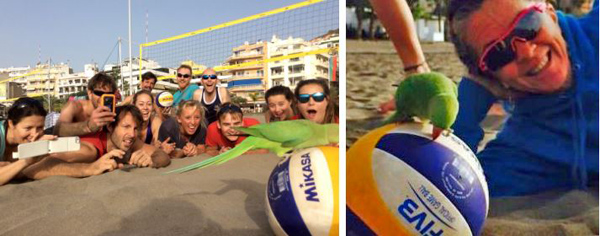
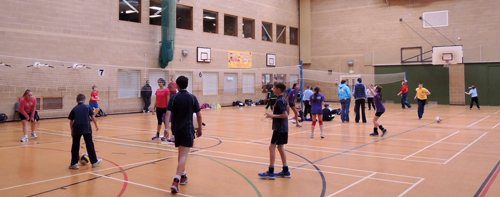
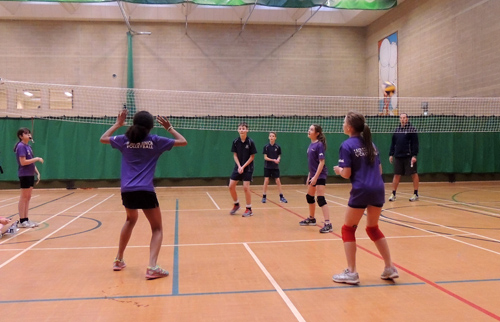
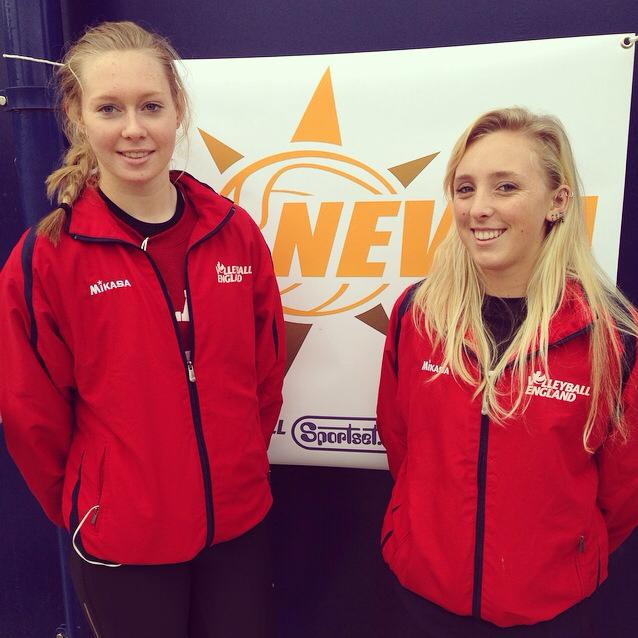
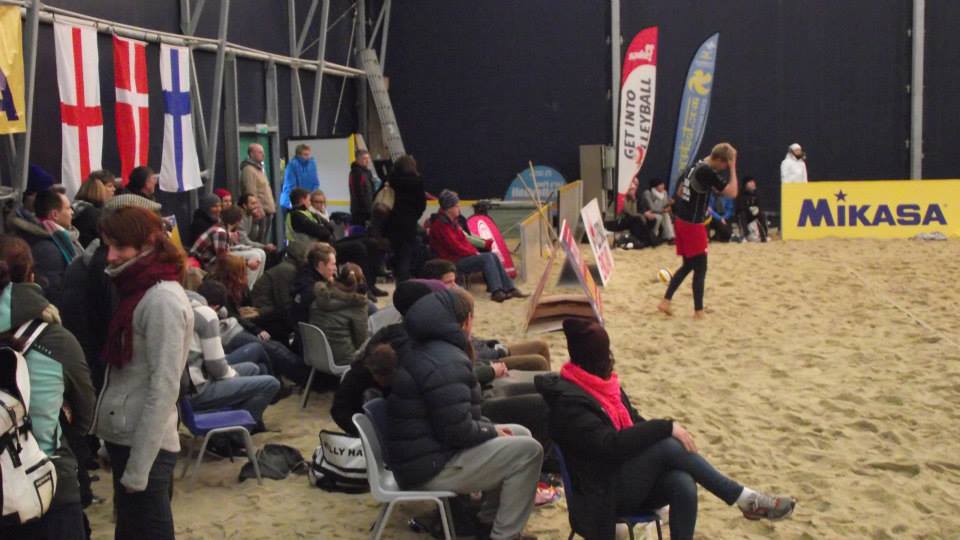
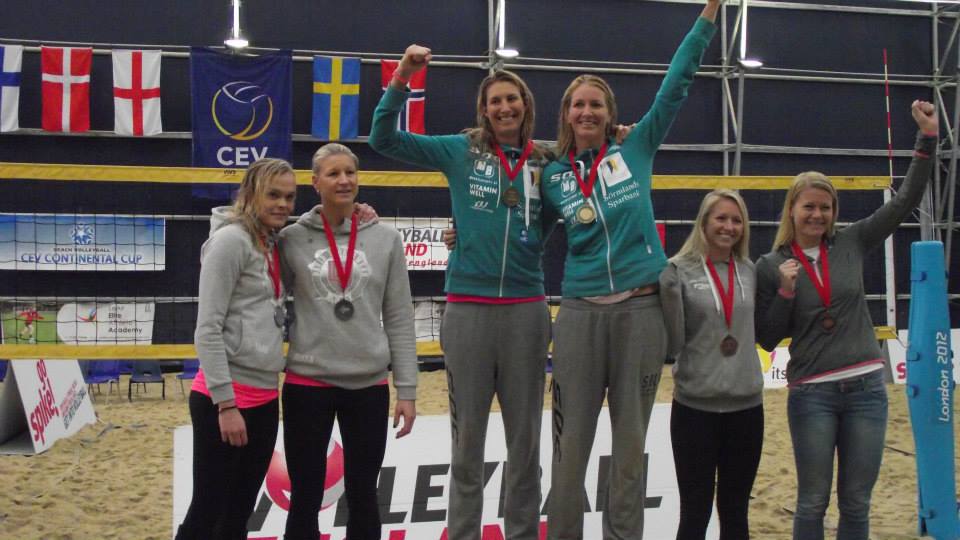
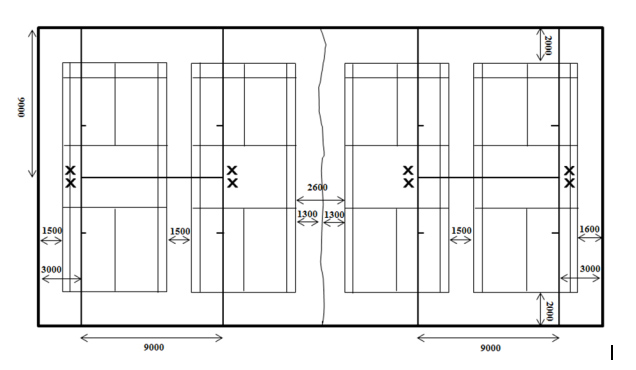
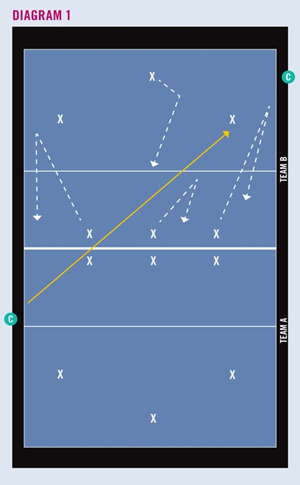


 We have managed to catch up with England Cadet Boys and the Malory Eagles coach, Carol Gordon.
We have managed to catch up with England Cadet Boys and the Malory Eagles coach, Carol Gordon.